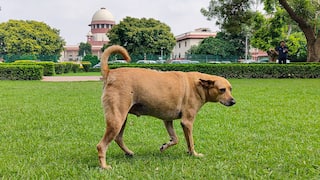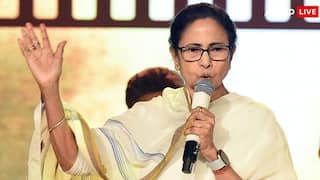Book Excerpt | The Lion & The Lily: Shuja-ud-Daula, The Buxar Debacle & The Birth Of A City
In ‘The Lion & the Lily: The Rise & Fall of Awadh’, Ira Mukhoty uses Persian, English, and hitherto untranslated French sources to delve into the life and times of 18th-century Awadh.

In 1767, the English travel writer Jemima Kindersley had this to say about Nawab Shuja-ud-Daula: “The nabob…is the most formidable nabob in Hindustan, active, enterprising, deceitful and unprincipled, bound by no laws divine or human, which can interfere with his interest; supple to the greatest meanness to those he fears; a tyrant in power, in short a true oriental Great Man.” The candour with which Kindersley excoriated both the nawab and the ‘Great Men of the Orient’ is breathtaking in itself but, prejudice apart, it is in its own way a rather glowing testament to Shuja’s temperament and talents.
Indeed, General Richard Smith, British commander at Allahabad, and churlishly critical of Indian rulers, was astounded that “Shuja-ud-Daula bred up in all the luxury of the east and ever much addicted to pleasures should now so totally change his manners as to adopt this system of conduct which in time must infallibly render him truly formidable. I own I cannot but admire the man for the great progress he has already made in his new system.”
The bewilderment, one senses in these colonial recordings, stems not so much at the expected ‘Oriental’ tyranny, debauchery, and despotism, but rather that this particular Oriental potentate overcame adversity with rather more ‘English’ verve and courage.
For, after the shocking debacle of Buxar, Shuja did not allow himself to slump into a paralysing stupor of despair but instead instantly turned his insatiable energy and ambition into strengthening his city and province. A Company officer wrote with alarm about the nawab’s renewed interest in governing his country; “Till of late he gave little attention to business,” he grumbled. “He was up before the sun, mounted his horse, rushed into the forest, and hunted down tiger or deer till the noon of day. He then returned, plunged into the cold bath and spent his afternoons in the harem among his women. Such was the state of Shuja-ud-Daula’s mind till the late war.” But, after Buxar, the nawab would make Awadh, and Faizabad in particular, the focus of his work. Up until this time, Lucknow and Faizabad had both been alternating centres of power for Shuja, while for the earlier nawabs, the lure of imperial Delhi had been irresistible. But after 1765, it was Faizabad that would become the vortex of Shuja’s passion and energy, and he would completely alter its topography and culture.
ALSO READ | Why Shinzo Abe Was The 'Principal Architect' Of India-Japan Relationship In 21st Century
In light of the humiliation the nawab had suffered due to the fecklessness and greed of his troops, it is not surprising that his attention first turned towards the reorganisation of his army. His Mughal troops, entirely mercenary, were completely disbanded, to be replaced by new troops and officers hired from among his Rajput, Brahmin, and Shaikhazada* subjects as well as from the armies of other regional rulers. “Within eighteen months,” writes historian Richard B. Barnett, “he had brought together more than 30,000 troops, both cavalry and infantry, training and organising them after the European model with the assistance and advice of the French, Armenian, and Abyssinian officers…” Shuja moved away from the practice of Safdar Jang and Saadat Khan of hiring wholesale contingents of Persian and Afghan troops, instead replacing them with heterogenous local troops. Other officers were recruited from amongst old family retainers who had been elevated by the nawabs and therefore owed absolute loyalty to Shuja. Raja Beni Bahadur, the Brahmin Naib of Awadh since 1757, had proved a man of such slippery fealty† during the Battle of Buxar that Shuja would later have him arrested and blinded. The raja was replaced with an illiterate Afghan retainer called Ilich Khan who had begun his career as a carpet spreader and was entirely in thrall to the nawab. And a final feature was the appointment of khwajasaras as important military leaders. Khwajasaras were deracinated troops without their own ties of blood, who therefore considered the nawab their surrogate parent, serving him with complete loyalty. These measures betrayed a man obsessed with the need to create a fighting corps of men who would lay down their life for him, immune to corruption or poaching. The infamously unreliable feature of Hindustani armies had become rampant by this time, as described by Modave:
In India there are many chieftains who lend themselves to different princes along with their followers. They serve either a raja, or a soubedar, can often wage war against a prince whose salt they have long eaten, as we say in this country. These chieftains are great looters and destroyers. If the prince who is keeping them does not have the money to give them their entire pay, he tells them — ‘here is this province which belongs to me, and which my enemies have taken over. Try to establish yourself there’… This leads to unhappiness and tyranny.
This is an excerpt from Ira Mukhoty’s ‘The Lion & the Lily: The Rise & Fall of Awadh’, reproduced with permission from the publisher, Aleph Book Company. The book will be launched on July 30.
[Disclaimer: The opinions, beliefs, and views expressed by the various authors and forum participants on this website are personal and do not reflect the opinions, beliefs, and views of ABP Network Pvt. Ltd.]
Related Video
Sambhal News : Electricity Department Investigates SP MP Ziaur Rahman Barq’s Residence Over Suspicious Meter Reading































